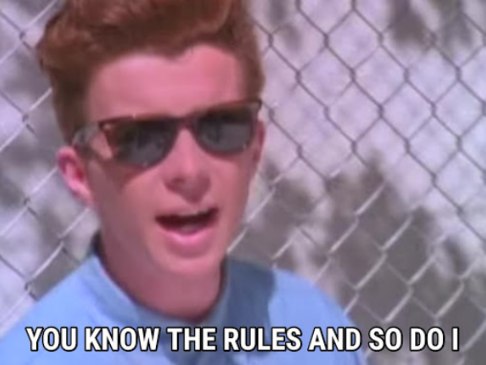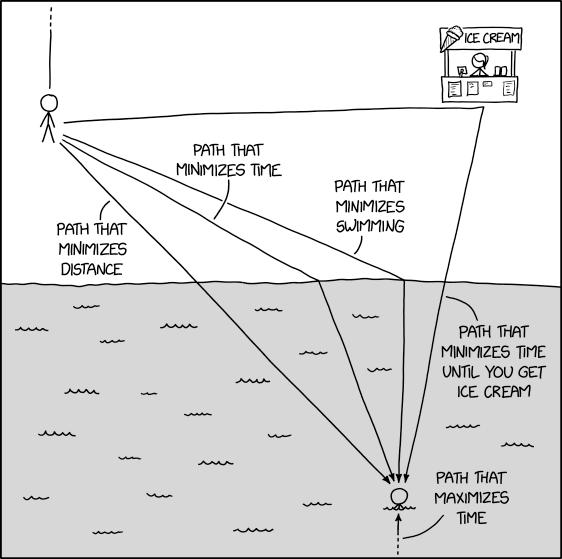Rules

Understand your incentive
If you set goals be clear on why you want to achieve this goal. Usually this comes with downsides and setting the right priorities is essential for choosing the right path. However, be clear that the path usually is unknown to some extent and things will change. This is where your incentive kicks in and make a logical re-evaluation of the path chosen possible. Be true to yourself and understand your incentive when pursuing goals. Are you doing it for the right reasons? Is the reason you are doing something even achievable/still worth it or just a motivation to continue?

Do it anyway
If friends alter their plans or back out at the last moment, don't be deterred. Continue with your plans, and you might encounter new faces along the journey. Reconnect with the initial reason you wanted to participate and go for it. If socializing was the primary goal, communicate your feelings to those who cancelled. It's smart to plan events that aren't overly dependent on others, guaranteeing you can see them through. This strategy not only simplifies the planning process but also reduces the risk of letdowns. Additionally, embarking on a journey alone or with a different group frequently leads to unexpected experiences and the formation of new friendships.
Do nothing
Be able to do nothing. Allow yourself to unwind, releasing both the tension and the need for your actions to serve a specific purpose, even momentarily. Ultimately, action is inevitable, even if it manifests as mere stillness. The key to "Niksen", the dutch verb meaning "doing nothing", is to do nothing, without a purpose. As Olga Mecking puts it: "We always have in mind some kind of outcome. When we prepare meals, we think, ‘This meal will help me lose weight or will make me healthier.’ If we go for a walk, it has to be part of our 10,000 steps. So we lose that fun of just eating or just walking. So it’s about letting go of the outcome."
Consider this a mental exercise, akin to the mental equivalent of progressive muscle relaxation. While planning to engage in Niksen might seem contradictory, it's a valid approach. The more one practices Niksen, the more natural and spontaneous it becomes, transcending the need for deliberate planning.
Digital
Mute stuff
Don't limit yourself in undesired ways but rather optimize how to consume information.
- Mute sounds that annoy and distract.
- Block users, unsubscribe oder block mails - whatever is undesired should not reach your attention more than once.
- Disable popups and redirect/move messages that are just informational.
- Limit the number of services you use and actually use them.
- Be active, not passive: Don't behave based on triggers like notifications, sounds, new mails. Read whenever you make yourself time for it. (This works for work as well)
- Choose what to consume instead of consuming whatever is brought to you.
File over app
The principle of valuing files above applications underscores the importance of producing lasting digital assets. These assets should be both manipulatable and stored in universally readable formats. Opt for tools that provide such adaptability.
To guarantee that your documents remain legible for generations to come, even on computers from the years 2050 or 2525, they should also be understandable on a system from the 1960s. The lasting impact of your digital work depends more on the files themselves than on the software tools with which they were made. While applications might become obsolete, files have the potential to persist. Consider the ancient hieroglyphs in the Egyptian pyramids - the messages they convey are more significant than the instruments used to etch them.
This principal can be extended to:
- Don't be dependant on services that you can avoid.
- If you use services understand how you can migrate to the next service before using it.
- Prefer offline working tools if possible and feasible.
- Keep it as simple and stupid as possible without limiting yourself on functions you need.
Own a domain
Owning a domain makes moving mail services easier. It also makes it possible to have endless aliases for various services. This allows username/mail AND password to be different for any service.
Use a password manager
Until some distant future, passwords and 2FA will be the method of logging in to any service online.
- The amount of passwords = the amount of services you use. This will grow and quickly becomes unmanageable when following basic password guidelines (every password should be different, complex and changed regularly).
- You probably have more than one device on which you need your credentials. Password managers help you sync all credentials across your devices.
- If you have a partner and/or children sharing passwords is a thing. Password managers help.
- Password managers are not only ideal for credentials. Use them to store sensitive information of any kind you may need and comes in handy when you have access to one of your devices.
Exercise
No free shower
Before stepping into the shower, ensure you've worked up a sweat. If your day mainly involves desk work, engage in activities like running to break a sweat before you bathe. Commit to exercising first so every shower feels truly deserved.
Possessions
This one sparks joy
"This one sparks joy" is a phrase popularized by Marie Kondo, a tidying expert and author from Japan. It encapsulates the core idea of her KonMari Method, which is a system of simplifying and organizing your home by keeping only those items that "spark joy." According to Kondo, if something makes you feel happy or joyful when you hold it, you should keep it; otherwise, you should let it go.
Regularly evaluate your possessions, retaining only those that bring joy and discarding the rest. Unnecessary items not only consume physical space and require upkeep but also occupy your mental landscape. Often, these superfluous belongings lack a proper place in your home and frequently obstruct your living areas.
What to buy
Obviously it is not a good idea to buy things you don't need with money you don't have to impress people that don't care. Rather buy things that spark joy and you are willing to actually use and make you happy/life better. Get rid of those things that don't. Know when to gift friends, sell, through away or store it for later.
Remember that you always pay twice for every purchase:
- First you pay money have it
- Then you pay time to use it
Don't pay the first price if you won't pay the second price. This cycle leads to a feeling of insufficiency and self-defeat, as you accumulate an "unpaid" debt of second prices and end up feeling overwhelmed and time-poor.
Eventually you pay with more money and time to fix it, have it fixed or buy it again. This is the part where quality and repair friendliness maters. As the saying goes: "You get what you pay for", "Buy cheap, buy twice", "It's only cheap on paper"...
Not only usage leads to maintenance, repairs and placement: Your purchase will also age and become useless, old and broken over time. Find ways to re-purpose it or fix it and sell it. It may make sense to buy cheap first to learn what you actually need and appreciate the nice things.